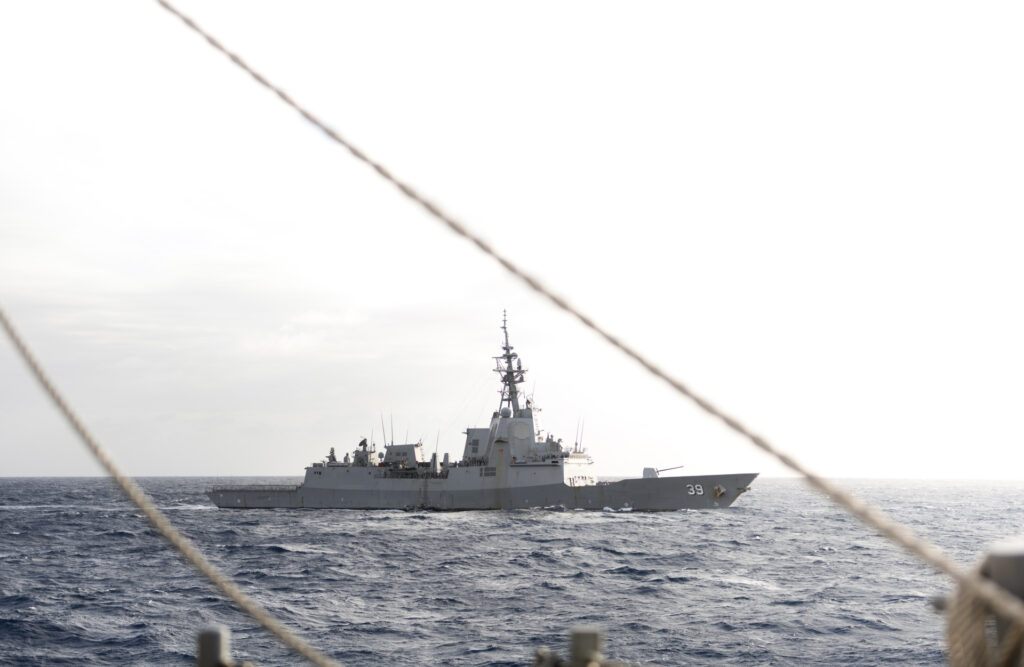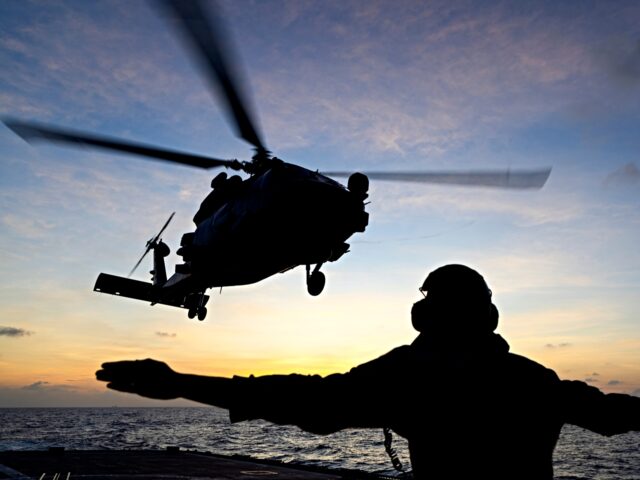An Australian Navy helicopter pilot was forced to take evasive action after a Chinese military fighter jet detonated flares close to his aircraft’s course as it was operating in international waters near South Korea.
Canberra described the actions of the J-10 Chinese Air Force plane as “unsafe and unprofessional” following the incident which took place in the Yellow Sea over the weekend.
On Saturday a MH-60R Seahawk which had launched from air warfare destroyer HMAS Hobart was intercepted by the People’s Liberation Army-Air Force (PLA-AF) as it was taking part in a U.N. mission to enforce sanctions against North Korea.
“The PLA-AF aircraft released flares along the flight path of the Australian Defence Force (ADF) helicopter,” the Australian Defence Department said in a statement on Monday night, ABC News reports.
“This was an unsafe manoeuvre which posed a risk to the aircraft and personnel.

File/Air warfare destroyer HMAS Hobart at sea during training exercise during Exercise Tasman Shield 2023. (LSIS Susan Mossop/RAN)
“While there were no injuries sustained by ADF personnel or damage caused to the MH-60R helicopter, the safety and wellbeing of our ADF personnel continues to be our utmost priority,” the department added.
The incident occurred a day after it was revealed Australia’s Navy Chief had recently confronted his Chinese counterpart over another incident last November where divers were injured in a sonar attack also in international waters.
On that occasion Australia accused the Chinese destroyer CNS Ningbo of injuring Australian navy divers with sonar pulses in Japanese waters.
Australia said China disregarded a safety warning to keep away from the Australian frigate HMAS Toowoomba in an action that mirrored a similar event involving the armed forces of both nations in 2022.
China maintains that the encounter happened outside Japanese territorial waters and that the Chinese warship caused no harm.
Chinese President Xi Jinping plans to visit Australia this year for the first time in a decade as bilateral relations have improved in recent years from unprecedented lows.

COMMENTS
Please let us know if you're having issues with commenting.